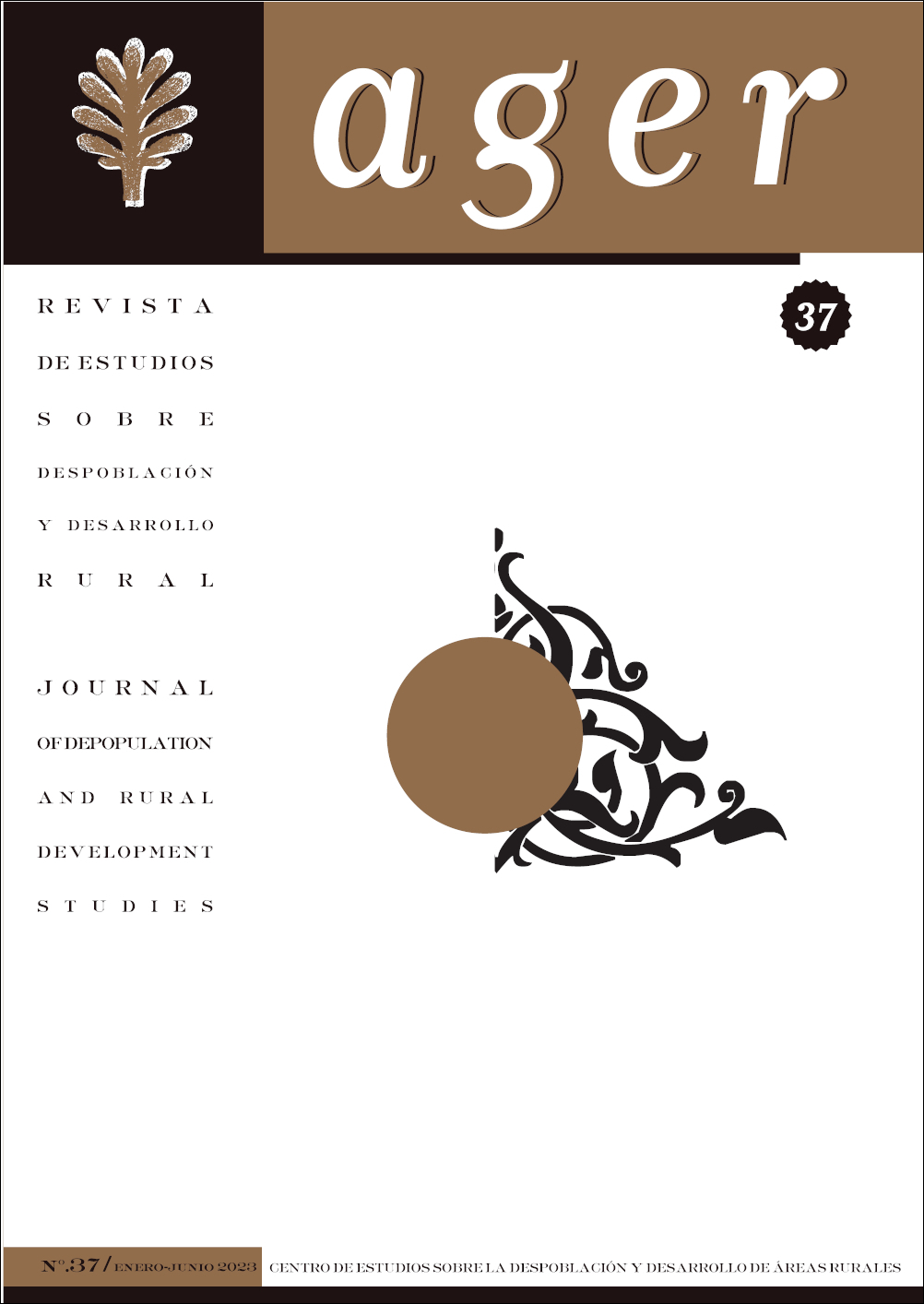Hacia un mayor intervencionismo y direccionalidad en las políticas de desarrollo rural: el ejemplo vasco (España)
Resumen
Son muchas las comunidades rurales que se enfrentan a un nuevo contexto marcado por la despoblación, hasta el punto de situarlas al borde de su abandono. Otras, por razones diferentes, también afrontan un proceso de desestructuración. Las zonas rurales vascas quedan a expensas de un medio urbano que aporta a estos territorios una función exclusivamente residencial. La aprobación de la nueva ley de desarrollo rural se encuadra en la necesidad de aplicar un modelo de intervención que tenga en cuenta la situación que atraviesa. La investigación persigue el objetivo de valorar la conveniencia del modelo elegido. La principal novedad estriba en el modelo de gobernanza público-privada que propone. Su responsabilidad recae en un ente público, HAZI. La nueva ley premia la agilidad, intervención y utilidad sobre otros criterios como participación, cogobernanza o direccionalidad partiendo de la base. Agentes locales e investigadores consideran que la ley de desarrollo rural del País Vasco supone un retroceso respecto al marco legal anterior, al dejar en evidencia la desconfianza sobre unos agentes rurales a los que se les impone la función de impulsar políticas establecidas de arriba abajo.
Publicado
Cómo citar
Número
Sección
Licencia

Esta obra está bajo una licencia internacional Creative Commons Atribución-NoComercial-SinDerivadas 4.0.
Aquellos autores/as que tengan publicaciones con esta revista, aceptan los términos siguientes:
- Los autores/as conservarán sus derechos de autor y garantizarán a la revista el derecho de primera publicación de su obra, el cuál estará simultáneamente sujeto a la Licencia de reconocimiento de Creative Commons que permite a terceros compartir la obra siempre que se indique su autor y su primera publicación esta revista.
- Los autores/as podrán adoptar otros acuerdos de licencia no exclusiva de distribución de la versión de la obra publicada (p. ej.: depositarla en un archivo telemático institucional o publicarla en un volumen monográfico) siempre que se indique la publicación inicial en esta revista.
- Se permite y recomienda a los autores/as difundir su obra a través de Internet (p. ej.: en archivos telemáticos institucionales o en su página web), lo cual puede producir intercambios interesantes y aumentar las citas de la obra publicada. (Véase El efecto del acceso abierto).

